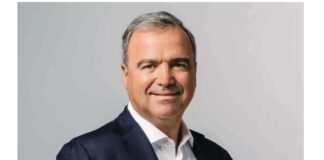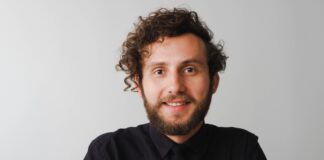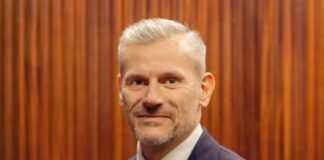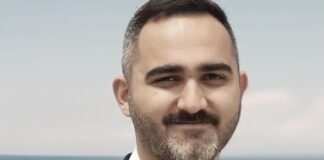Money Masters is a financial education platform aiming to solve the financial literacy crisis around the world.
Please introduce yourself and your startup Money Masters to our readers!
Hi, I am David Giron, the CEO, and co-founder of Money Masters. Money Masters is a financial education platform aiming to solve the financial literacy crisis around the world.
How did you get the idea of Money Masters?
The idea for Money Masters wasn’t a lightning-in-a-bottle moment, but rather came in parts. Let me first start with the fact that I was born and raised in Guatemala, one of the poorest countries in the world. In order to create a better future for myself and my family, I moved to the US for college and later endeavored out to Europe. After experiencing the inequality between developed and emerging nations, I realized that a vital part of a country’s development is the educational infrastructure that is in place. However, despite the infrastructure being so well developed in places such as the United States I found that there was still minimal financial education available. Even in a top country like the United States, over 37% of the population is financially illiterate and this number grows much larger when you begin to look at developing economies.
Why did you decide to start with Money Masters?
When I was living in Germany, I used Duolingo to learn German. That’s when something clicked. Duolingo changed the game in the language learning space. It made it possible that anyone could learn a language anywhere in the world for free. I asked myself, why can’t I do the same thing for finance? Inspired by Duolingo, we created Money Masters.
By breaking down finance into bite-size modules, and creating interactive content, I believed I could make learning finance a fun experience. Just like Duolingo, we gamified the experience by creating rewards, streaks, and competitions so that learning about finance was more of a game. Technology is changing the way we learn, we don’t want to sit down in a classroom and just read for hours. We all learn in different ways, and that’s what we try to achieve at Money Masters.
What is the vision behind Money Masters?
The vision behind Money Masters is to make financial education accessible to all. We believe that everyone has the ability to be financially free and we are looking to unlock this potential through knowledge. Everyone spends their whole life working for money and we believe with sufficient education you can make your money work for you.
How difficult was the start and which challenges you had to overcome?
The company was founded in October of 2020 and this was a difficult time to start a business as Covid made the business landscape difficult to navigate, whether it be finding potential partners or working in a team environment. But despite these difficult challenges we were able to set achievable goals that we were then able to meet which got our project off the ground. As we are dealing with an ed-tech platform, transitioning financial education into the tech atmosphere took some time. But as of now, we are fulfilling the goal of reaching over 400 bite-sized lessons by the end of 2022.
Who is your target audience?
At Money Masters, we want to make financial education accessible to all. Our app is designed for anyone who wants to learn about finance and in particular we target the demographics that have the lowest levels of financial literacy, which includes Gen Zs and Millennials.
What is the USP of your startup?
The unique selling proposition at Money Masters is that we mix theory and practice. Most programs either educate you in totality on the theory or attempt to teach you how to beat the stock market. We have created an ecosystem where the two aspects of financial education are mixed together, both theory and practice. You must complete a section of our academy (lesson learning) before you can enter the arena, also known as the Fantasy Investing Competition. We are a one-stop shop for all things finance, we don’t only teach people about personal finance or investing, we teach people about all things money and then allow them to use their newfound knowledge in practical ways.
Can you describe your typical workday?
No two days in a start-up environment are the same. However, we do our best to embed routines into our team’s schedules to avoid the chaos that comes hand and hand with the start-up lifestyle.
Every Morning we have a simple 15-minute meeting to catch up with all members of the team and see what they are working on and what obstacles they are facing with current tasks. We heavily prioritize company culture and the whole team will have lunch together frequently.
The majority of the days will include meetings with potential investors and partners, attending events for our established partners which lead to a growing community presence, and also meeting with other founders and mentors as they have helped me immensely on this journey.
Where do you see yourself and your startup Money Masters in five years?
In 5 years we see ourselves as leading figures within the Ed-Tech space. With a 20% month-over-month growth since our product was launched on the app and google play store we believe it’s very reasonable that we will have accumulated over 1 million active users globally by 2027 on mobile and web applications. However, we believe our content shouldn’t only be consumed by the English-speaking community and we are working hard every day to translate our platform into different languages. We are hoping to have 15+ languages available on our app within the next 5 years. Most importantly we want to see financial literacy rates around the world increase and we want to be the company that takes the complexity out of finance.
What 3 tips would you give to founders?
- Keep chasing your dreams
- Use the resources available within your area and network (incubators, connections, etc.)
- Keep the team’s spirits high, and develop a good company culture from day one.
Thank you David Giron for the Interview
Statements of the author and the interviewee do not necessarily represent the editors and the publisher opinion again.
















